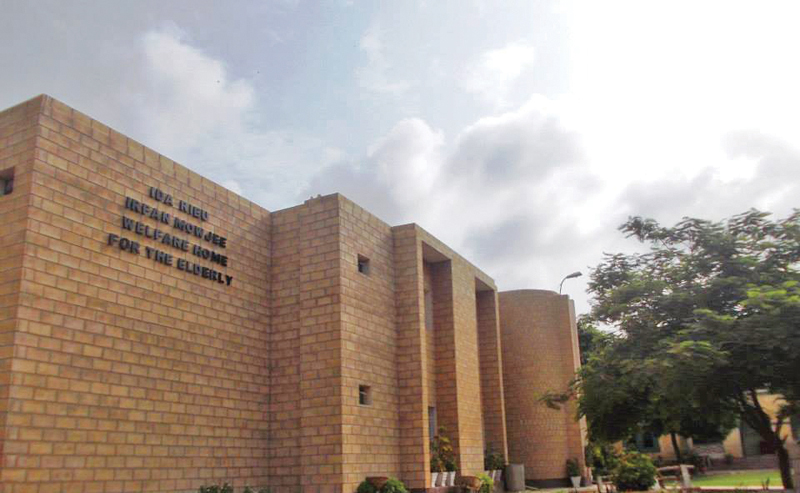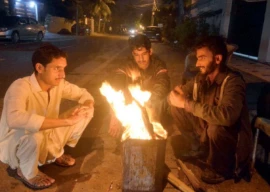
The auditorium at the Ida Rieu Complex rang aloud with music as young girls, mostly visually and speech-impaired, rehearsed for a tableau scheduled for the near future. At one end of the large hall sat two elderly residents, wearing sombre looks, quite oblivious to the girls' performance.
The two elderly gentlemen stared into space, probably reflecting and reminiscing times of yore, not wishing to indulge in the activities. Their worried looks betrayed their nonchalant glances as they counted the minutes, hours and days until they would no longer be able to call the institute a home.

These two elderly residents find they are no longer welcome in the Irfan Mowjee Welfare Home for the Elderly, located in the Ida Rieu Complex. The home is to be shut down and a vocational training institute for the visually and aurally impaired is to be built in its stead. Where the residents will be sent is not yet confirmed. What is certain is that at the end of this month (February), they will no longer have a home at the facility.
Established in 1921 with the sole aim of providing education for the visually, aurally and speech impaired children, the Ida Rieu has served the poorest segments of society since. According to a former principal, Qudsia Khan, who served at the institute for 45 years, the home for the elderly was built in 1872, long before the inception of the institute. It was later merged with the institute whose association managed both their affairs. "The home was established for the elderly and poorer residents and was meant for both disabled and able-bodied citizens. It is a public space, not anybody's property," she rebuffed.
Over the years, however, the home went from the hands of one management to another, until 2007, when a new wing was inaugurated as the Irfan Mowjee Welfare Home for the Elderly. The new building boasted four large fully furnished rooms, available for single and double occupancy with attached bathrooms and a common kitchen. The facility has a capacity of eight residents — only two have been residing in it for the last few years. The squeaky clean floors and fresh coat of paint on the walls give the impression that it has been sparingly used.

"The new management increased the monthly boarding charges up to Rs20,000," lamented Khan. "Only the very well-off can afford this much money," she said, adding that the previous building housed between 35 and 40 residents at a time.
Muhammad Baqar, a retired banker, is the oldest resident at the block and has been paying Rs5,000 per month based on an old contract. "We have arranged for him to be transferred to Darul Sukoon," explained the manager, Abida Memon. "He is very attached to this place and had formed cordial relationships with the other residents over the years." Ever since he has been told he will have to leave, Baqar has stopped interacting with others and busies himself with mundane work or keeps writing in his old diary.
The other resident, Ahmed Ali, is bedridden and is living in the memories of his past. While his wife stays with her niece, it has not been decided what is to become of him.
The Ida Rieu School's board management secretary, Dr Munawwar Hussain, refused to comment on the issue of the home's closure. "I have heard that the home for elderly is to shut down but I am still waiting for details. Whatever happens, the place will remain part of the school," he told The Express Tribune.
For his part, man who runs the home's affairs, Irshad Mowjee, revealed their plans of turning the place into a vocational training facility for the students. "The place belongs to the Ida Rieu. We are not answerable to anyone for our decisions," he said.
Published in The Express Tribune, February 26th, 2015.





1732697578-0/Untitled-design-(5)1732697578-0-270x192.webp)











COMMENTS
Comments are moderated and generally will be posted if they are on-topic and not abusive.
For more information, please see our Comments FAQ